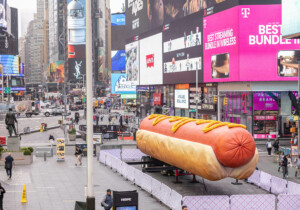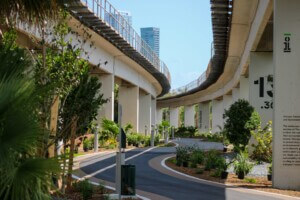The Metropolitan Transportation Authority’s (MTA) board has voted to increase subway and bus fares to $2.90. Following months of speculation, and a pause on fare increases during the pandemic, the MTA’s board is moving forward with the $0.15 fare increase. The New York State Legislature gave additional funding to the MTA in the most recent state budget, which helped the authority stave-off an ever higher fare increase. Fare increases will also impact weekly and monthly passes, the Long Island Rail Road (LIRR), Metro-North, and Express Buses. All subway, bus, and rail changes will be implemented on or before August 20, with toll hikes rising by August 6.
The MTA has been operating under the expectation of a biennial fare increase, which pre-pandemic, it had mostly shifted to the cost of weekly and monthly passes. The $2.75 fare has been in place since 2015, when it was raised from $2.25 (when the subway opened it cost $0.05). Weekly passes will now cost $1 more ($33 to $34) and monthly passes will go up $5 ($127 to $132). The authority’s 2023–2026 financial plan accounts for an overall 5.5 percent in fare and toll revenue (the MTA also oversees bridge and tunnel tolls). The MTA holds that standardized, low-percentage fare increases help the authority keep up with inflation and avoid more drastic and less-predictable fare hike shocks.
For MTA-run commuter trains, monthly and weekly fares will still be lower than they were before the 2022 10 percent fare reduction (meant to bring riders back from the pandemic fall-off), with increases capped at 4.5 percent across Metro North and LIRR passes. Off-peak fare discounts for both commuter lines will be set to 26 percent, part of a larger standardization effort, and a slight bump for Metro-North (formerly 25 percent) and cut for the LIRR (formerly 27.5 percent). Fare increases for all other commuter tickets will be capped at 10 percent, or a $0.50 maximum for increases above 6 percent. Express Bus fares will increase by $0.25 to $7.
Changes are also coming to the LIRR and Metro North’s City Ticket program. During off peak hours, commuters could purchase a LIRR or Metro North ticket for $5 for trips beginning and ending in New York City. Now, the MTA is adding a $7 City Ticket for peak hours, and discontinuing the Atlantic Ticket, which provided discounted tickets from between some Brooklyn and Queens LIRR stations.
Toll increases are also coming: 6 percent for New York E-ZPass customers and 10 percent for out of state or toll-by-mail customers.
Subway ridership is still down since the pandemic, but the MTA has signaled that larger planned changes will now be continuing as planned. Subway ridership was 62 percent compared to pre-pandemic levels on July 17, and has fluctuated between 50 and 82 percent this month. Ridership has exceeded pre-pandemic levels for exactly three days this year: January 16, February 20, and June 19 (notably all holidays).











